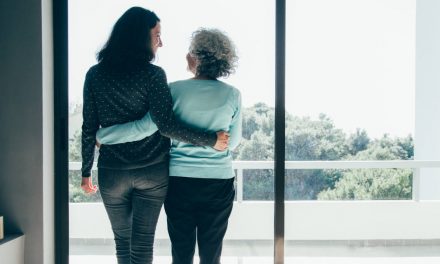SelfHelp Community Services launched a Virtual Senior Center program!
By Pam McDonald
I love to have new experiences, go to exotic locales, meet unusual people; but I hate to travel. Unfortunately I am not a good flyer (although I hardly ever scream anymore in flight) and I’m not fond of land conveyances – buses, trains and automobiles just take too long. So, for the past 20 years I’ve been asking grand – and other kids to invent teleportation.
Work Out The Kinks
I say to whatever little one will listen, “Work out the kinks, kid, so I don’t end up with a fly head and arm*, but invent a commercial teletransporter and you’ll make a mint! I’ll be your first customer.” Regrettably I’ve come to believe that like America electing a woman president this won’t happen in my lifetime.
But, about 5 years ago, SelfHelp Community Services, Inc., a nonprofit headquartered in Manhattan, launched a Virtual Senior Center (VSC) program. This organization has its roots in supporting Holocaust survivors seeking refuge in America and is dedicated to assisting seniors and at-risk populations to remain in their own homes and live with independence and dignity, VSC could be the way I’ve been looking for to go places without leaving home.
All-In-One Computer Technology
According to David Dring, Executive Director of SelfHelp Innovation, the program is designed to enable homebound seniors to fight social isolation. David says, “We use all-in-one computer technology – touch screen monitors, large print keyboards, webcams, microphones, headsets, surge protectors, and an easy-to-use software interface – to bring the world into users’ living rooms in real time.”
My thoughts as David was talking: hey, I want to take a virtual tour of a museum in Israel. I want to join the discussion about the ramifications of the current vacancy on the Supreme Court. I want to meet the person in France I’m competing against in Scrabble. That and so many more avenues to “Connect, Learn and Play” is what members of the Virtual Senior Center community are able to do.
Currently about 20 “students” attend one or more of the 25 to 35 classes offered each week by volunteer teachers. Classes range from the expected – like beginning conversational Spanish and “Music, Music, and More Music,” a virtual sing-along, to more esoteric subjects including “The Myth of Icarus in Art & Poetry,” and “Mathematics Beyond Numbers”.
Virtual Senior Center Users
VSC users first learn Skype and finer points of emailing so they are easily able to connect with family and friends, as well as meet people and build relationships. David notes that VSC offers an online community where seniors can more securely interact with one another.
By June, David expects about 500 Americans in various geographic locations to be taking advantage of the Virtual Senior Center. Developed with a variety of grant funding, it was first made available – at no charge – to low-income homebound seniors. Currently plans call for an enterprise model to be sold for around $500 for each all-in-one computer, plus a $60 per month subscription fee.
As David points out studies show a strong link between social interaction and mental as well as physical well-being for seniors. Socializing may allow seniors to maintain a sharp mind, stay interested in and connected to the world around them, increase feelings of happiness, develop a sense of belonging, and also improve the following:
-
Mental health
About 7 million people age 65+ have symptoms of depression. Additionally dementia touches 1 in 7 Americans over age 70. Consistent human contact and communication appear to reduce symptoms of both.
-
Nutrition
A Montreal professor found a correlation between food intake and social interaction, noting that the hospital patients she studied ate more when they were involved in friendly and lively interactions with others.
-
Physical health
Numerous studies indicate that engaging with others can boost the immune system, lower blood pressure, and reduce physical pain (which is commonly reinforced by depression). And, an AARP article noted that seniors in large groups are more likely to encourage healthy habits among each other, including exercise.
Dr. Bill Thomas, an internationally renowned protester against ageism, notes that there are currently only about 600 geriatricians in America and that, while the number of seniors in the population is growing, the number of colleagues in his specialty is declining; which may be a reason David happily reports that SelfHelp recently received a grant to explore adapting VSC for virtual doctors visits, primarily with geriatricians.
Currently several doctors offer VSC classes on understanding medications and treatments common among the elderly, but this variation would bring seniors face-to-face with medical professionals who’s specialty is the diseases, debilities, and care for the oldest among us.
Is a VSC virtual doctors visit something you would consider adding to the care and service offered in your senior living settings? To learn more, visit VSC.
* A reference to the movie, The Fly. I prefer the 1958 version with Vincent Price, but the 1986 remake with Jeff Goldblum is good too.








